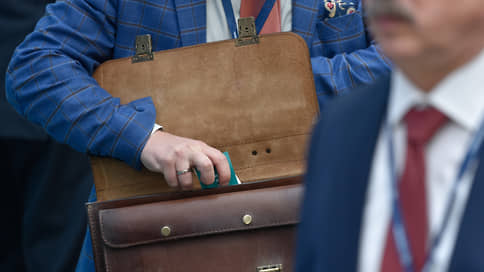The Israeli Yurfirm will help with the search for property of a Russian debtor in Europe

The property of Russian debtors hidden in Europe will help to find foreign lawyers. At the request of the financial manager, the Moscow court approved the involvement of an Israeli law firm to search and recover Spanish assets of a bankrupt Russian. The debtor’s objections with reference to the EU sanctions, which could interfere with the manager and hired specialists, were rejected, since restrictions were not introduced to represent the interests of Russian persons in European courts. The lawyers interviewed by Kommersant say that it is easier to recover bankrupt assets in friendly jurisdictions, but in unfriendly countries there are a chance of this, since there were already positive precedents.
The Moscow Arbitration Court in May examined the dispute on the possibility of attracting foreign specialists to help the financial manager (fin), assigned to the bankruptcy procedure of Grigory Fomenkov. In July 2023, the Russian was declared bankrupt. Its manager found that the debtor who does not live in Russia has real estate in Spain and accounts in Spanish banks, where a number of payments from Russian accounts were made.
Referring to the insufficient knowledge of the Spanish language and the features of the foreign legal system, the Finn in May 2024 filed a petition for the involvement of the Israeli yurfirm VDC Legal LTD for the search and recovery of the debtor’s property abroad. According to paragraph 6 of Art. 213.9 of the Bankruptcy Law, to hire specialists and reimbursing the costs of them at the expense of the competitive mass, the manager needs the permission of the court.
The issue was considered by the court for a year. The debtor objected to the hiring of Israeli lawyers, stating, in particular, that experts will require an advance payment for their services.
But the draft agreement with the Israeli legal entity submitted by the manager to the court involved the payment of services only for the result – 50% of the revenue received from the sale of property of the debtor found in Spain, and only after its sale.
Mr. Fomenkov doubted the fulfillment of decisions on the sale of property abroad, referring to the fact that the Spanish house is his only housing. However, the metropolitan court indicated that this argument “is probabilistic” and is not related to hiring specialists.
Finally, the debtor stated that foreign assets can be sold only if the bankruptcy procedure in Spain can be launched, which only lenders can achieve, but their access to justice is limited by European sanctions. But the court did not convince these arguments, since Grigory Fomenkov did not refer to specific norms of legislation that would demand the excitement of the local bankruptcy of the debtor in Spain and excluded the final access to the Spanish courts and means of legal protection. In addition, EU sanctions do not affect the right of Russian citizens and organizations to protect in European courts, the decision of May 15 says.
7.1 billion rubles
In 2024, specialists hired by arbitration managers for help in bankruptcy affairs, according to EFRSB
As a result, the court allowed to hire an Israeli company, pointing out the need to identify and sell the property of the debtor outside the Russian Federation, while the Finn does not have sufficient experience in Spanish jurisdiction. The court also took into account that VDC Legal in 2023–2024 was involved in the provision of similar services.
Working risk of sanctions
The general director of the Yur-Status legal act, Ruslan Ostroumov says that “for Russian arbitration managers, the search, identify and implement assets abroad is a very complex and expensive task,” including due to a high price tag for foreign consultants. However, here the Israeli law executive agreed to work according to the “payment for the result” scheme, said Andrei Gusev, senior partner of AB Nordic Star. “An attempt to recover assets abroad in such a financing model does not create a financial burden on the current bankruptcy procedure in Russia and does not infringe on the interests of creditors,” admits Ilya Sorokin, partner, Novator Legal Group.
“If for some reason it is not possible to find or sell property, no one will receive money and there will be no losses for the competitive mass either,” Mr. Gusev said.
However, not all foreign lawyers are ready to invest at their own funds in the search for foreign property of the debtor, Mr. Sorokin warns.
Of great importance is specific jurisdiction, where there are assets.
“If we are talking about countries where there is no sanctions pressure or freezing of contacts with Russia (for example, Israel, the UAE, Turkey, Belarus, Kazakhstan), there is a chance for success, especially if the manager has specialized partners,” says Andrei Gusev. Things are more complicated with unfriendly jurisdictions. In general, the chances of recognizing Russian bankruptcy proceedings abroad and the implementation of foreign assets of the debtor exist, but in the EU countries they are much lower than in friendly or neutral states, says Ilya Sorokin.
But even there, in some cases, it is possible to achieve the recognition of the Russian bankruptcy procedure, therefore, “sanctions are not a sentence, but a working risk,” Mr. Gusev emphasizes. For example, the Czech Supreme Court recently recognized that the decision of the Russian court on the property rights of the debtor in the bankruptcy case has evidence, and the bankruptcy procedure, which has begun in the Russian Federation, does not interfere with the presentation of claims in the Czech Court, says Dinar Ibragimov, lawyer of the International Commercial Arbitration.
Note that the EU sanctions, introducing prohibitions on the provision of various consulting services, do not limit the access of Russian persons to European courts.
Unfortunately, Ms. Ibragimova continues, the courts of the Russian Federation, “often not very immersed in the context of the real circumstances of cases”, make decisions on the presence of sanctions prohibitions, without checking the presence of exceptions to which the restrictions do not apply.
At the same time, the sanctions regime creates other obstacles, for example, problems with the transfer of funds, the complication of compliance processes, barriers to access to databases and registers, Andrei Gusev lists. In addition, adds Ruslan Ostroumov, “often experts refuse to work with clients from Russia without explanation, apparently considering them“ toxic ”.”








